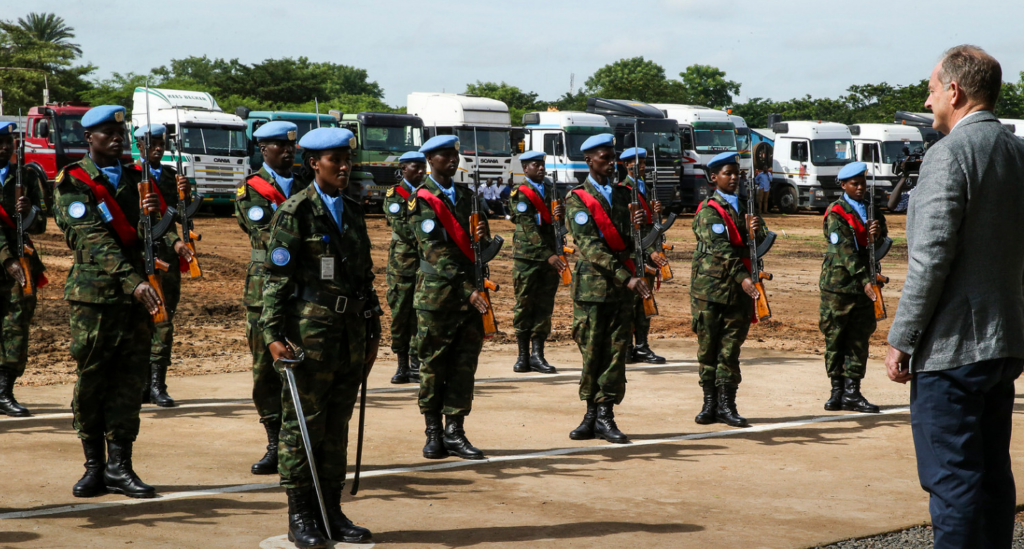South Sudan and the United Nations have agreed to break the deadlock after a dispute over control of the airport in the capital Juba, a government spokesman said on Monday.
The misunderstand started after the UN mission in South Sudan deployed its Rwandan peacekeepers that arrived in Juba earlier this month as part of the 4,000 strong regional protection force to Thongpiny base near the Juba International Airport.
The move prompted the government of South Sudan to suspend cooperation with the world body and to ground aircrafts belonging to United Nations peacekeepers saying the UN troops should immediately move to the Jebel base.
South Sudan’s Minister of Information Michael Makuei told reporters after a meeting with foreign diplomats in Juba today that the issue was resolved after the United Nations accepted to relocate its Rwandan peacekeepers to the Jebel base.
“The Rwandan contingent was deployed by UNMISS in the Thongpiny camp near the airport. Of course that was not the place assigned to them and the government intervened and told them to relocate these forces from there to their rightful place. This is all that brought misunderstanding,” he said.
Makuei revealed that the army chief General James Ajongo had suspended any cooperation and coordination with the UN mission in South Sudan over the deployment of regional protection near the airport.
“As a result the Security Council sat and we passed a resolution that yes we stand with the Chief of Defense Forces and that UNMISS should be given 48 hours to leave,” he said.
“Last week, we briefed David Shearer on that the Special Representative of the Secretary General. We briefed him on that and after briefing him he accepted that yes he will move out his forces,” he added.
The minister pointed out that the government of South Sudan lifted its ban on UN flights on 18 August after David Shearer accepted to move his troops to Jebel. “The clearance is not open if UNMISS wants to move, they follow the right procedure,” he said.
Ethiopian Ambassador to South Sudan Fisseha Shawel Gebre said their meeting with the government of South Sudan clarified the misunderstanding with the UN mission in the country.
“The government has resumed its full cooperation but there are her and there negative propaganda and news against the government, so we don’t want that to continue,” he said.
Shawl, who is also the IGAD representative in South Sudan, said the government was only trying to put things right.
In August 2016, the United Nations Security Council following request by the East African regional bloc IGAD approved the deployment of 4,000-strong regional protection force to provide security in Juba.
South Sudan’s government agreed after first rejecting the regional protection force as a breach of the country’s national sovereignty.




